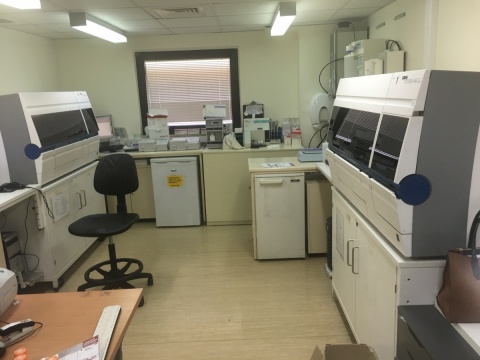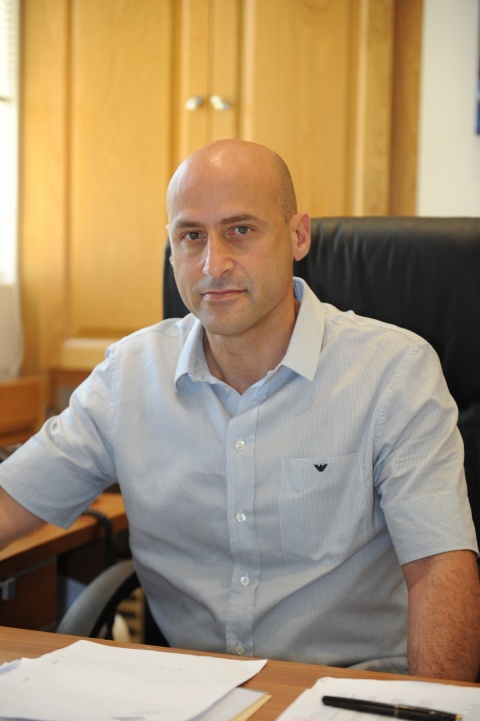Article • Challenges
No shortage of labs in Malta
Nowadays, the variety of clinical laboratories in a hospital setting is endless, especially due to the constant advent of new technology and scientific discovery.
Report: Moira Mizzi

This places a cutting-edge professional and ethical challenge on both the clinician and the laboratory specialist to give the best service to the patient in the realm of diagnosis and prevention. Despite its minuscule size, Malta still boasts of a hub of state owned laboratories and a number of much smaller private enterprises in the field.
Virologist Dr Christopher Barbara, chairman of the Pathology Department at Mater Dei hospital, describes the particular challenges of the only state-owned laboratory service on the island. ‘We cater for a large number of tests, almost 22,000 in a single day, coming from different sectors in the hospital, other public hospitals and clinics around the island and even from private labs that use our services in certain circumstances,’ he explains. ‘We offer these services on a 24/7 basis irrespective of the cost.’
The labs are also a national focal point that forms part of an international network (ECDC, WHO) focusing on disease surveillance and prevention.
Having to cater for such a large number of samples from different sources puts to test service quality, particularly where blood collection and transport are concerned. ‘Quality has been a major priority for me during the seven years I’ve been in charge of the labs,’ Barbara says. ‘Thus I insist on having a clear visibility of things to ensure accountability and efficiency.’
In his opinion this must start at a pre-analytical level so that the accuracy of the result is not jeopardised. In fact, the pathology department at Mater Dei has gone through major quality-centred changes for this purpose, with the aim to gain a much coveted ISO certification; these include the installation of a harmonised Lab Information System (LIS) software that ensures the acquisition of ‘clean data’ from sampling to result, putting in place standard operating procedures and quality manuals, the setting up of a coagulation clinic at all the outside clinics with a point of care (POC) testing facility, connected through the latest software to the haematology department, and the use of sample bottles with gel separators.
Phlebotomy was also relegated to staff members on a lower salary scale, who were specifically trained for the job to avoid sampling problems – usually rampant with junior medical staff. This shift in tasks also allowed a parallel shift of funds, which could then be used in the acquisition of necessary state-of-the-art equipment.
Capital expenditure is in fact another major challenge faced by labs every day. Barbara believes much can be done if unnecessary cost is curbed and funds are then used in a more profitable way. ‘At the moment we are planning to get an automatic sorter from the money saved from vetting unnecessary tests,’ he explains, excitedly. ‘In turn, this will save on human resources and extra wages, improve turn-around times, which then can be used to acquire other analysers, such as the Guthrie test. Although the challenges and demands are never ending, there’is a lot we can do to give the best service to the patient.’

For a private lab, giving the best service to patients is not just an exercise in quality control and cost-effectiveness but also having to contend with the ever-looming shadow of reputability, especially in a small market where competition is tight and patients have been accustomed to free medical service for decades.
Paul Sultana, head of Medical Laboratory Services (MLS), the private laboratory at St. James Hospital, in Sliema, describes how this focus on quality of service, especially where timing and reliability of results and availability of a wide range of tests is concerned, put his lab among the forerunners in diagnostics for patients and clinicians. ‘The advantage of running a private lab is the paucity of the bureaucracy that often limits state-owned labs,’ he observes. ‘For example, we immediately introduced liquid based cytology five years ago, whilst at Mater Dei, there is still a struggle to start up. Twenty-five years after being set up, MLS caters for both centres of St.James Hospital (Sliema and Zabbar), their respective out-patients departments and four immediate medical care units, two of which are located in each of the hospitals and the other two in the north and central parts of Malta, respectively.
The main labs are housed in the Sliema hospital, while smaller hubs are also found in both the Zabbar hospital. All these centres are natural sources of clinical samples, together with private general practitioners and specialists.
According to Sultana, these sources pose particular challenges, for example in the quality of the sampling and the cost-effectiveness of tests requested. ‘The labs must obviously run at a profit, so minimising cost is a must. As a result certain tests uncommonly requests are at times analysed in batches, or sent abroad; in most cases, however, we try our utmost to accommodate most patient and clinician requests especially the latter’s need to have the latest diagnostic tests at their fingertips.’
The biggest challenge that clinical laboratories face nowadays is balancing the responsibility and commitment to give the best service to patients against the scourge of the ever-rising running costs and hurdles to maintain high levels of quality assurance, especially since the miniutest break in the chain can spell the loss of human life.
31.08.2016





